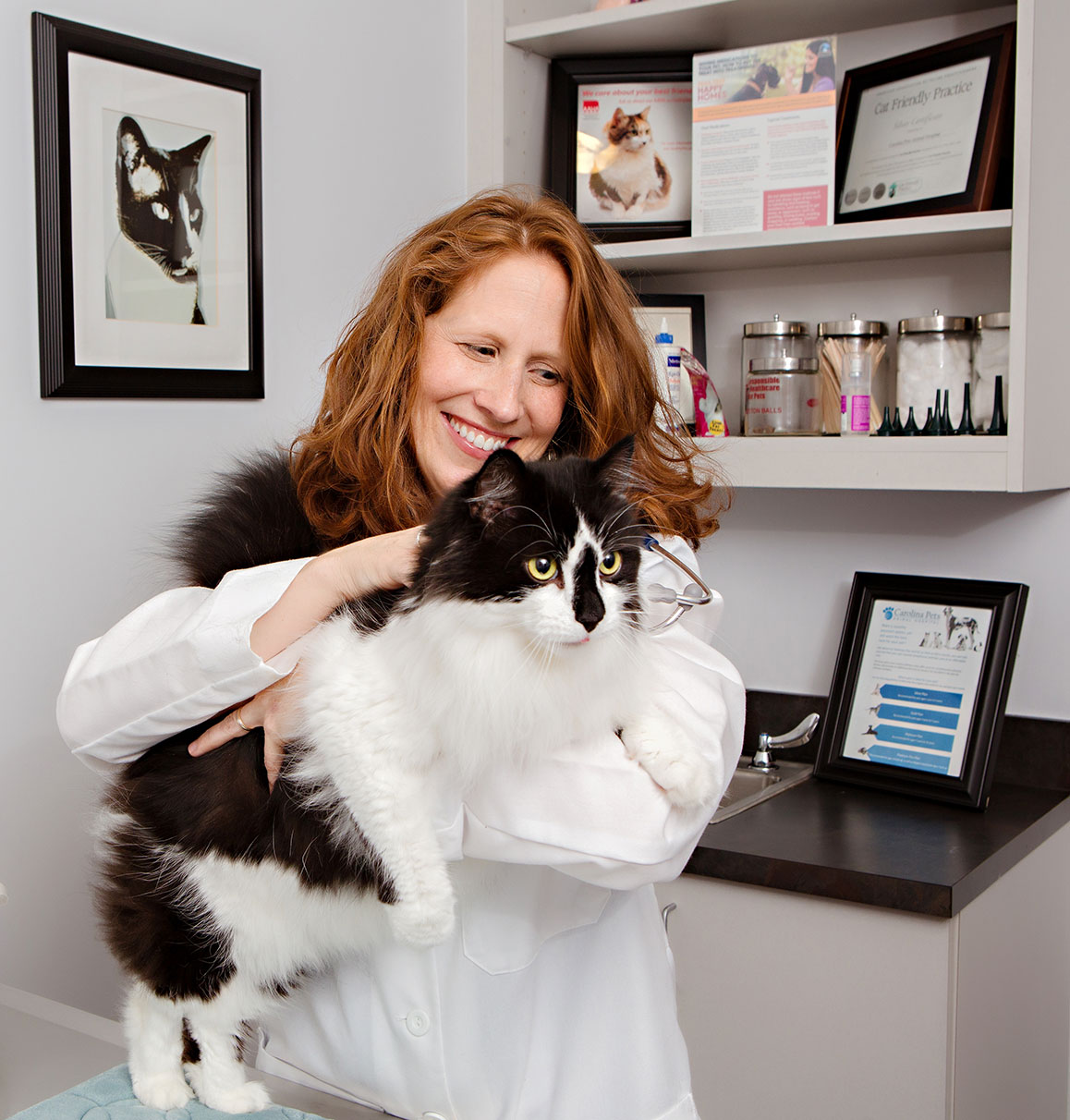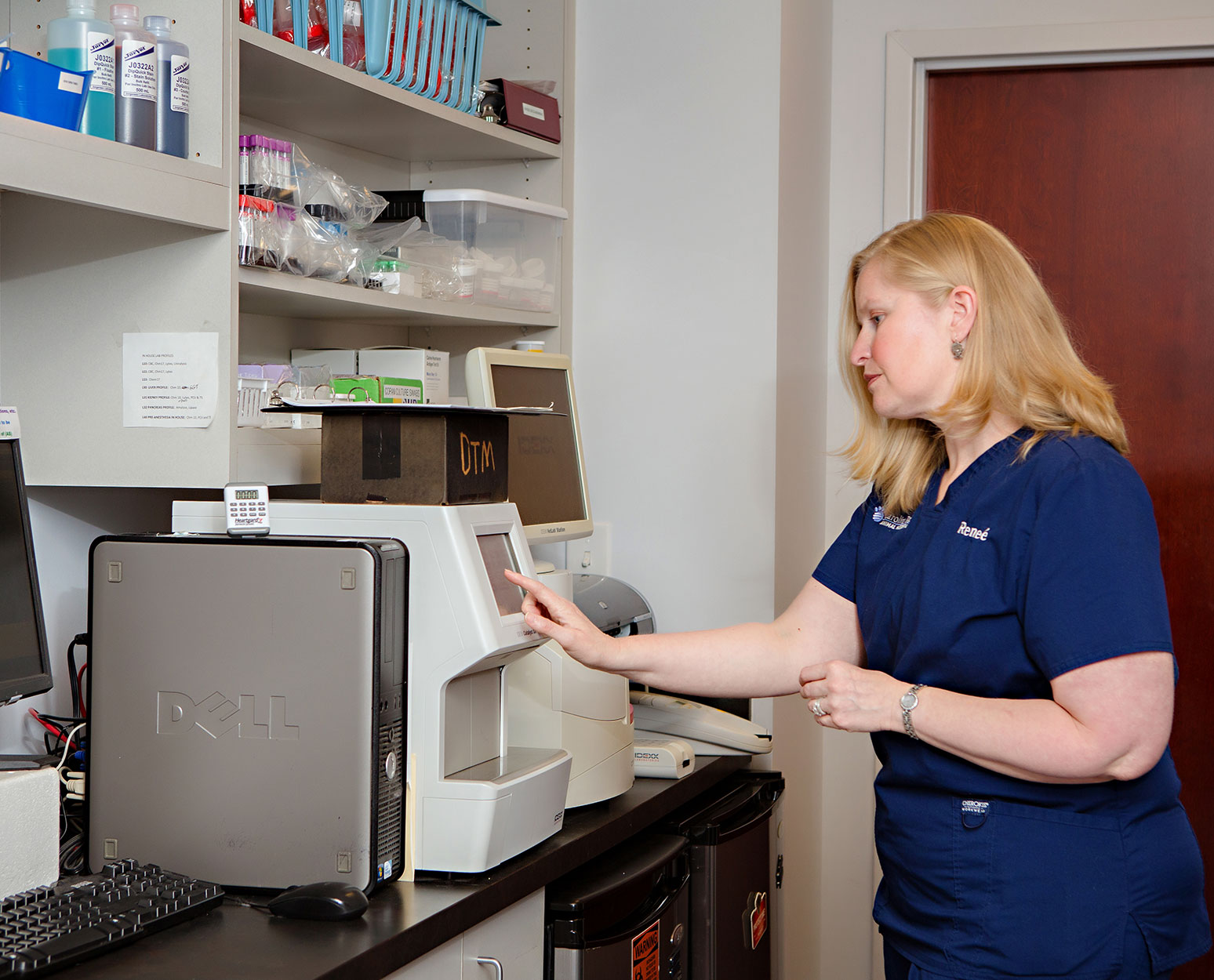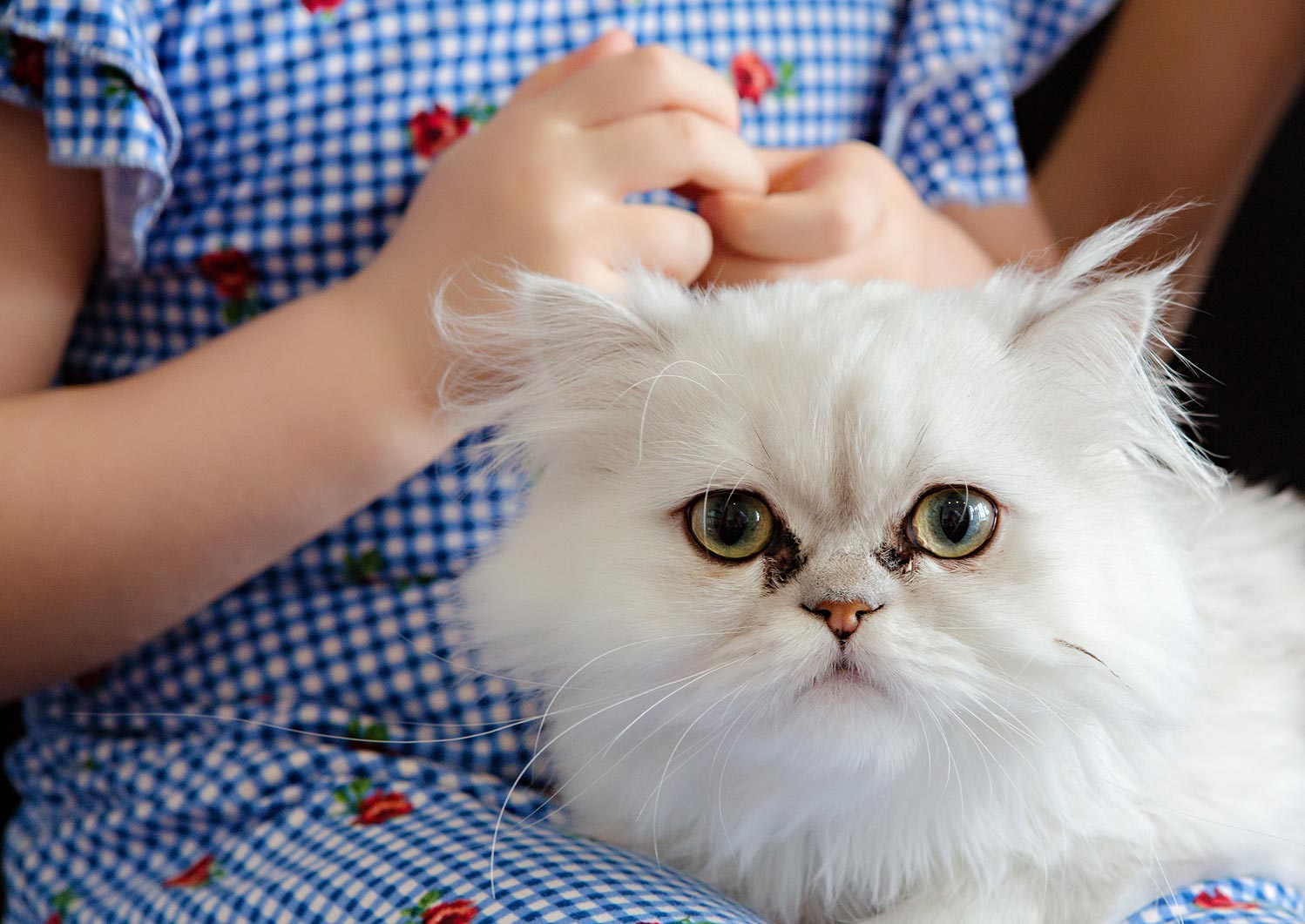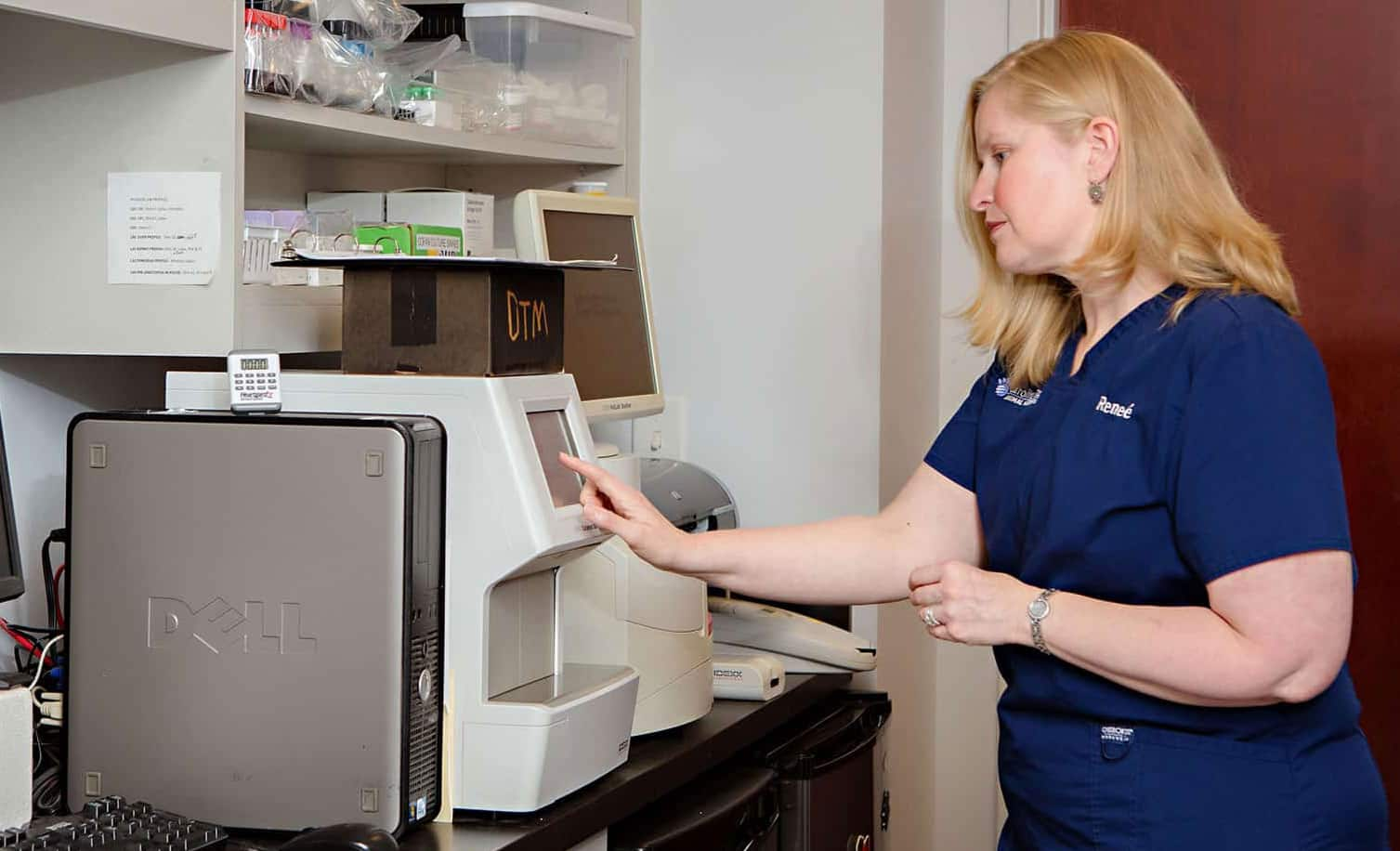Our Services
Our Services
Our Services
Medical + Surgical Services

Cancer Diagnosis + Treatment
When your pet has been diagnosed with cancer, at Carolina Pets Animal Hospital we understand how confusing and stressful this can be for pet owners. There are many misconceptions and myths about pets with cancer and treatment, especially with chemotherapy. We are here to help and to replace the misconceptions and fear with knowledge and hope. We strive to be a source of information and strength for your pet and your family.
There are more options than ever for treatment of your pet such as chemotherapy, radiation therapy, surgery, nutritional support, acupuncture and clinical trials. We tailor the treatment protocol for your pet’s specific cancer and potential concurrent medical conditions to optimize the outcome and minimize side effects. In some cases we may recommend a referral to see a veterinary oncologist. We want your pet to not just live as long as possible, but to live well. The goal is for patients to have fewer complications and lead a normal, happy life.
Laboratory
We offer a complete laboratory service on site and perform a wide variety of diagnostic tests such as parasitology, hematology, serology and blood chemistries.
For more extensive testing we utilize local labs as well as university labs throughout the country.


Tonometry
Tonometry is the measure of your pet’s intraocular pressure. We can test your dog or cat’s eyes for excess pressure easily and safely. The test, performed with a device called a tonometer, is not painful and does not require sedation.
This testing is important for any pet with recent ocular trauma, suspected glaucoma (elevated intraocular pressure) or inflammation in the eyes (uveitis). In addition, we recommend breeds prone to developing glaucoma come in for regular measurements to monitor eye pressure and begin treatment before any problems become irreversible. Please call us to discuss whether your pet may be at higher risk for glaucoma.
If you notice any of the following problems in either or both of your pet’s eyes: dilated (enlarged) pupils, clouding of the cornea (the normally clear outer layer of the eye), red or bloodshot eyes, one eye protruding or appearing larger than the other, squinting, or tearing, call us right away. Because glaucoma is painful, your pet may react by rubbing or pawing at the eyes or rubbing his or her head against the floor or furniture more than normal.
Cancer Diagnosis + Treatment
When your pet has been diagnosed with cancer, at Carolina Pets Animal Hospital we understand how confusing and stressful this can be for pet owners. There are many misconceptions and myths about pets with cancer and treatment, especially with chemotherapy. We are here to help and to replace the misconceptions and fear with knowledge and hope. We strive to be a source of information and strength for your pet and your family.
There are more options than ever for treatment of your pet such as chemotherapy, radiation therapy, surgery, nutritional support, acupuncture and clinical trials. We tailor the treatment protocol for your pet’s specific cancer and potential concurrent medical conditions to optimize the outcome and minimize side effects. In some cases we may recommend a referral to see a veterinary oncologist. We want your pet to not just live as long as possible, but to live well. The goal is for patients to have fewer complications and lead a normal, happy life.

Laboratory
We offer a complete laboratory service on site and perform a wide variety of diagnostic tests such as parasitology, hematology, serology and blood chemistries.

For more extensive testing we utilize local labs as well as university labs throughout the country.
Tonometry
Tonometry is the measure of your pet’s intraocular pressure. We can test your dog or cat’s eyes for excess pressure easily and safely. The test, performed with a device called a tonometer, is not painful and does not require sedation.

This testing is important for any pet with recent ocular trauma, suspected glaucoma (elevated intraocular pressure) or inflammation in the eyes (uveitis). In addition, we recommend breeds prone to developing glaucoma come in for regular measurements to monitor eye pressure and begin treatment before any problems become irreversible. Please call us to discuss whether your pet may be at higher risk for glaucoma.
If you notice any of the following problems in either or both of your pet’s eyes: dilated (enlarged) pupils, clouding of the cornea (the normally clear outer layer of the eye), red or bloodshot eyes, one eye protruding or appearing larger than the other, squinting, or tearing, call us right away. Because glaucoma is painful, your pet may react by rubbing or pawing at the eyes or rubbing his or her head against the floor or furniture more than normal.
Diagnostics + Testing
Cancer Diagnosis + Treatment

When your pet has been diagnosed with cancer, at Carolina Pets Animal Hospital we understand how confusing and stressful this can be for pet owners. There are many misconceptions and myths about pets with cancer and treatment, especially with chemotherapy. We are here to help and to replace the misconceptions and fear with knowledge and hope. We strive to be a source of information and strength for your pet and your family.
There are more options than ever for treatment of your pet such as chemotherapy, radiation therapy, surgery, nutritional support, acupuncture and clinical trials. We tailor the treatment protocol for your pet’s specific cancer and potential concurrent medical conditions to optimize the outcome and minimize side effects. In some cases we may recommend a referral to see a veterinary oncologist. We want your pet to not just live as long as possible, but to live well. The goal is for patients to have fewer complications and lead a normal, happy life.
Laboratory

We offer a complete laboratory service on site and perform a wide variety of diagnostic tests such as parasitology, hematology, serology and blood chemistries.
For more extensive testing we utilize local labs as well as university labs throughout the country.
Tonometry

Tonometry is the measure of your pet’s intraocular pressure. We can test your dog or cat’s eyes for excess pressure easily and safely. The test, performed with a device called a tonometer, is not painful and does not require sedation.
This testing is important for any pet with recent ocular trauma, suspected glaucoma (elevated intraocular pressure) or inflammation in the eyes (uveitis). In addition, we recommend breeds prone to developing glaucoma come in for regular measurements to monitor eye pressure and begin treatment before any problems become irreversible. Please call us to discuss whether your pet may be at higher risk for glaucoma.
If you notice any of the following problems in either or both of your pet’s eyes: dilated (enlarged) pupils, clouding of the cornea (the normally clear outer layer of the eye), red or bloodshot eyes, one eye protruding or appearing larger than the other, squinting, or tearing, call us right away. Because glaucoma is painful, your pet may react by rubbing or pawing at the eyes or rubbing his or her head against the floor or furniture more than normal.
Hours
Contact Us
Contact Us Anytime
Phone: (704) 220-0226 | Fax: (866) 593-0226 |
email: info@carolinapetsanimalhospital.com
Book your appointment
Click here to book an appointment at Carolina Pets Animal Hospital
Hours
Contact Us
Contact Us Anytime
Phone: (704) 220-0226
Fax: (866) 593-0226
email: info@carolinapetsanimalhospital.com
Book your appointment
Click here to book an appointment
at Carolina Pets Animal Hospital


